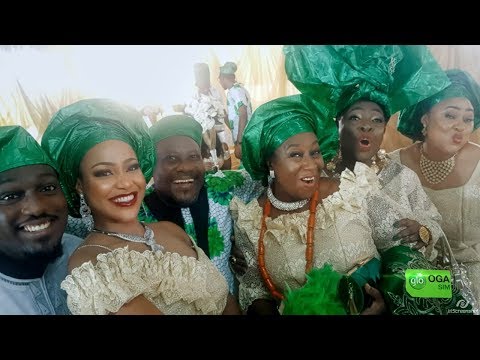By Moses Aladesola
For the APC, the 2023 presidential elections present a real test of its ability to survive and forge a unified front as a political organisation.
The Buhari era is about to end, and the hitherto unifying figure of a Buhari that appears to have glued the disparate tendencies in the party together will no longer be there.
Already, the commencement of the process of picking the party’s candidate for the 2023 contest has shown glaringly that the contest will be brutal and acidic, unless a miracle happens.
Since the party’s initial objective of booting out PDP and gaining power has been achieved in the Buhari two-term presidency, 2023 will signal for the party the real wheeling and dealing of ruthless ambition driven by self-aggrandizement among its contending power blocs.
Even now, allegations of betrayal, vociferous proclamation of personal ambitions and dirty innuendoes about imposition of candidates have started reaching an uncomfortable level in the party.
Regardless of the drama and subplots that have started unfolding, it is for the party and Nigerians generally to zero in on a candidate that has the right mix of persona, charisma, vision, discipline, awareness and courage to keep the party and the country in good shape post 2023.
The task may be daunting but what the party needs to do is clear cut. This is because the problems a post Buhari president will confront are already here with us now.
One, with continuous fall in oil prices and a general lull in business activity since the outbreak of COVID-19, the economic realities have been worsened by the growing poverty and unemployment which has made upward social mobility unachievable for the wider population. The Nigeria Bureau of Statistics has continued to record staggering inflation rates, with food inflation and general cost of living growing out of hand and, according to the World Poverty Clock, nearly half of the Nigerian population currently subsist in extreme poverty. In fact, the Brookings Institute has predicted the figure to rise to 110 million by 2030.
Two, the generality of Nigerian citizens are disillusioned that the current administration has not succeeded in its efforts to deliver democratic economic gains, better governance, and to tackle corruption and insecurity decisively. Thus, loss of confidence in the government and the party is very high.
The initial public upbeat mood that greeted government’s fight against corruption at incipient following the introduction of revolutionary measures such as the Treasury Single Account (TSA) to reduce leakages has, sadly, evaporated today, leading to growing frustration.
Three, more than ever before, Nigeria is looking incapable of taming the intractable insecurity situation in the land as citizens shiver due to increased attacks from bandits, kidnappers and terrorist groups. Kidnappings have reached a crisis point with increased scale and frequency. Call for balkanization of the country along ethnic lines has also been gaining traction.
Arising from the growing citizen frustration, it is clear that whoever the party chooses to replace President Buhari in 2023 must have the dexterity, knowledge and empathy required to manage the potentially game-changing citizen advocacy led by a historically apathetic middle class that has woken up to bark and bite. This awakened group will definitely offer a more coordinated and sophisticated challenge to the status quo than Nigeria has ever had to manage before. Of course, because social media and digital have also come to offer more ammunition for the citizens in their growing anti-establishment consciousness, it cannot be business as usual and the party cannot afford not to take into consideration these new paradigms and dynamics as it prepares for life in government after Buhari.
The challenge therefrom is that from its array of political gladiators that have indicated interest in the job, APC has to pick the one that most fits the profile of a 21st Century public administrator and politically astute servant-leader.
Although, it is a tough call, the party’s best materials for now appear to be Vice President Yemi Osinbajo, Senator Ibikunle Amosun and Governor Kayode Fayemi. In terms of finesse, experience, capability, age and ability to cross-connect the various critical population segments, the three stand out from the pack.
If APC is to respect and espouse the principles of fairness, equity and national cohesion by fielding a Southern candidate after President Buhari’s eight years, any of the three stand a chance of recreating and shoring up the party’s brand fortune.
However, it is an open secret in political circles across the South West that, unlike the Vice President and the Ekiti State governor who have been described by informed political watchers as tacit fall back options for the vaunted Ashiwaju Bola Tinubu ambition that appears to be hitting a political brick wall, Senator Amosun offers the party more gravitas and believability, especially among the segment of the population who still hold on to the notion that APC was created as a political vehicle to advance the personal ambition of the founding fathers and not to move Nigeria forward genuinely.
This is because out of the three gentlemen, it is only Amosun that is regarded as a true politician with a mind of his own and not a creation and/or disciple of the Tinubu School of Politics. Political watchers point at the fact that no one has been able to stick the disloyal, betrayer, Judas Iscariot and ingratitude labels on Amosun as done by the BAT crowd on the other two as a justification of the respect and political sagacity which the former Ogun State governor parades in the South west political space.
Aladesola, political analyst write from Lagos.










